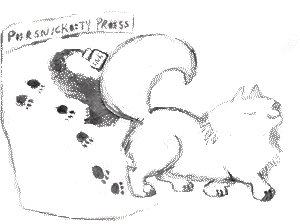 Tackling Shakespeare can be an ill-advised venture. Especially if you are rewriting one of his tragedies as a black comedy, portraying his female characters as degenerate tarts, and rechristening British cities with names like “Lint-Upon-Tweed” and “Bongwater Crash.”
Tackling Shakespeare can be an ill-advised venture. Especially if you are rewriting one of his tragedies as a black comedy, portraying his female characters as degenerate tarts, and rechristening British cities with names like “Lint-Upon-Tweed” and “Bongwater Crash.”All of these hijinks are present in “Fool,” American author Christopher Moore’s absurdist version of “King Lear.”
The fact that Will’s oeuvre is not sacred to Moore is hardly surprising considering his includes titles such as, “Lamb: The Gospel According to Biff, Christ's Childhood Pal” and “You Suck: A Love Story.”
Narrated by Pocket, the king’s jester, the novel opens with Lear dividing his kingdom among his three daughters, the adulterous and malicious Goneril and Regan, and the virtuous, but often hilariously blunt Cordelia.
To decide which woman gets the most bountiful share, Lear, who is a few bricks shy of a load thanks to old age, commands that his daughters prove who loves him the most. An appalled Cordelia refuses and is promptly banished to France where she is married off to King Jeff (yes, you read that right) without a dowry.
The ensuing fight for control between Goneril and Regan receives much encouragement and manipulation from Pocket. Eventually, their duplicity is revealed to Lear who, by this point, is mad as a hatter. Contrite, the king laments his punishment of honest Cordelia and the only soul who can set all to rights is our lovable knave of a narrator.
Moore’s admiration for British comedy shines in “Fool.” Nearly all of the dialogue reads as if it were torn from the pages of Monty Python. The characters quip and pun their way through debauchery with great vigor. However, despite his best efforts, some of Moore’s punch lines occasionally seem forced.
Dialogue in which one character continuously misunderstands another has been done ad nauseum, and done best by the Bard himself. Moore’s attempts at teasing out guffaws with this tired tactic fail.
Overall, though, the author’s sharp prose and black humor are more than capable of inducing soda-through-the-nose bouts of laughter. One of his clever footnotes states that a fictional saint is the patron of “combination skin, cold beverages, and necrophilia.”
Most of the high points in the story stem from Moore’s grudgingly acknowledged admiration for Shakespeare.
“No matter what you have to say,” Moore says in the epilogue, “it turns out that Will said it more elegantly, more succinctly, and more lyrically — and he probably did it in iambic pentameter — 400 years ago.”
References to Shakespeare’s other plays abound. The witches from “Macbeth” play an integral role in the plot and Pocket encounters a band of traveling actors who regularly perform “Green Eggs and Hamlet.”
The novel is a concise 307 pages and those who would rather endure root canal than read Shakespeare need not fear. It is not necessary to read “King Lear” to follow the plot, although familiarity with the play and Shakespeare’s other works will contribute to the entertainment value.
The author does sprinkle his modern writing style with Elizabethan words and phrases, but for all of these Moore provides witty definitions.
For those who enjoy British comedy, Shakespeare, bawdy romps, or all of the above, “Fool” will not disappoint.
For more information on Christopher Moore, visit his Web site at: www.chrismoore.com.





0 comments:
Post a Comment